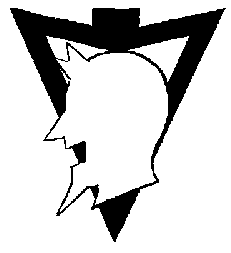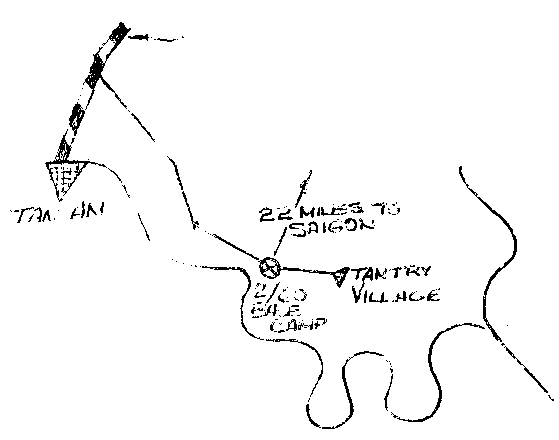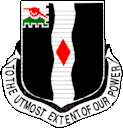|
|
 |
|
|---|
![]()
Last date/time page edited
06/13/12 16:24
|
2nd Battalion 60th Infantry

RECONDO
GO DEVILS
Continued, pages 13-22
(2) The following decoration is authorized as a reward for heroism not in combat:
Soldiers Medal The Soldiers Medal is awarded to any person who, while serving in any capacity with the Army of the United States, shall have distinguished himself or herself Heroism not involving actual conflict with an armed enemy. Established in 1926.
(3) Other awards authorized in combat:
(a) Purple Heart "The Purple Heart is awarded to any member of the Armed Forces of the United States, and to any civilian of the United States serving with the Army, who was wounded, either in action against an armed enemy of the United States or as a direct result of an act of such and treatment is made a matter of official record. Established in 1782, reestablished in 1932.
(b) Combat Infantryman Badge The CIB is awarded to any person holding an Infantry MOS, who, subsequent to 6 December 1941, shall have satisfactorily performed duty while assigned or-attached as a member of an infantry unit of Regimental (Brigade) or smaller size during any period the unit w engaged in active ground combat any officer those basic branch is other than infantry, who, under appropriate orders, has commanded an infantry unit of regimental (Brigade) size or smaller for a period of 30 consecutive days is deemed to have been detailed in the infantry and is a eligible for the award of the CIB provided all other requirements are met. One CIB may be awarded to authorized individual for each separate war participated in, provided all requirements as set forth in Army Regulations are met.
(4) Good Conduct Medal. The Good Conduct Medal is awarded to enlisted personnel for exemplary behavior, efficiency and fidelity in active Federal Military Service. A recommendation by an individual's unit commander is required for the award. To qualify for the award each enlisted person must have continuous active Federal Military Service as specified in para 44, AR 672-5-1 (normally three years). In addition, throughout the qualifying period the following criteria must be met.
(a) All conduct (character) and efficiency ratings must be "Excellent" except that:
1. Ratings of "Unknown" for promotions of the period are not disqualifying.
2. Service school efficiency ratings based upon academic proficiency of at least good rendered subsequent to 22 November 1955 are not disqualifying.
(b) There must be no conviction by court-martial
(c) The individual must not be serving in, nor have been serving at the time of separation in, an assignment of the type designated as "specially controlled duties" in AR 604-10
13
(5) Awards: Awards are recognition given to individuals or units for certain acts or services. Examples of awards given to individuals are Certificates of achievement, suggestion award certificates, letters of commendation, and letters of appreciation. Examples of unit awards are the Distinguished Unit Citation and the Meritorious Unit Commendation.
SUBSECTION J
SPECIAL MEDICAL PROBLEMS
1. SICK CALL, see the platoon medical aidman for any minor problems or routine care. Before reporting to the aid station on sick call, a sick slip from the aidman and clearance from the company orderly room is required. Sick call is held daily from 0800-0945 hrs. Routine dressing changes from 1000-1130 hrs. Immunizations must be up to date before going on R&R, leave, or DEROS:
Smallpox Tetanus Yellow Fever Cholera Plague Typhoid Typhus Flu |
1 Year 6 Years 6 Years 6 Months 6 Months 3 Years 1 Year 1 Year |
Two pair of glasses are required while in Vietnam if you wear them. Notify the orderly room immediately if you need a second pair.
2. SPECIAL PROBLEMS during the course of your year in Vietnam you may on occasion experience some of the common medical disorders found in the United States; for example, headache, common cold, upset stomach etc. Those ailments are found the world over. However, in Vietnam and other countries having a tropical climate you will have exposure to medical problems you have not previously encountered.
3. MALARIA - Malaria is an illness caused by the malaria parasite and transmitted from human to humans by a species of female mosquito common in Vietnam. Symptoms include severe headache, fever of up to 105, rigorous shaking chilled redness and weight loss frequently exceeding 20-25 pounds during the 1st week of illness.
4. As with most transmissible disease an ounce of prevention is worth a pound of cure. Preventive measures include the following:
a. Malaria Pill. This is an orange tablet to be taken weekly while in Vietnam and for a period of 8 weeks following DEROS. Monday is the day ordinarily set aside for taking your malaria pill which is available at the mess hall, aid station and company aid man. Small but significant
14
number of people experiencing some mild diarrhea in the 24 hour period following the taking of the malaria pill. This can be prevented in any of several ways.
(1) Take the pill with a full meal.
(2) Break the pill in half taking one half at each of two meals.
(3) Take one anti diarrhea pill prior to taking your malaria pill.
b. Insect Repellent should be applied to all exposed arena of the body.
c. Insecticide spray - to spray area before retiring.
d. Mosquito netting - most be tucked in securely around mattress.
e. Clothing - sleeves should be rolled down and buttoned to the wrist after dark. Short pants should not be worn after dark.
f. Screening - to insure insects are kept out of your area.
5. SKIN DISEASES - Because of the high temperature and humidity as well as the frequently dusty environment in Vietnam skin diseases are a common occurrence if effort is not taken to prevent them. The climate conditions are conducive to excessive nonfat and oil production by the akin glands, often coupled with dust in the atmosphere readily leads to occlusion of gland ducts. The resultant effect is the occurrence of many common akin diseases such as heat rash, acne, boils, etc. Sweat and humidity also predispose to many Lingua diseases of the akin, notably ringworm and "athletes feet".
Regarding treatment - many measures are both preventive and curative for the mild cases.
a. Hygiene - daily showers are the norm and should pose no problem in basecamp where shower facilities are available many times during the day.
b. Proper clothing - Jungle fatigues are standard issue and far superior to stateside fatigues in this type of climate. You are also encouraged to remove your shirt and wear short pants while in basecamp during the daylight hours.
c. Avoid unnecessary trauma to the skin - Don't scratch mosquito bites and pick at small sores. This only causes farther breakdown of akin and promotes infection.
d. Launder clothes frequently - Laundry facilities are available in basecamp. Clothing is returned in three days. Accumulated sweat and dirt in clothing is an open invitation to irritating skin diseases and infections.
15
6. Regarding FOOT Problems - This poses a special problem year around but especially in the rainy season from May to October then tactical operations frequently require that a great deal of time be spent with your feet immersed in water. However, several preventive measures can be taken.
a. Take extra socks with you on operations in water tight containers (such as plastic bags). Whenever the tactical situation permits time will be allotted for a change of socks.
b. In the base camp the latest in men's fashion is shower shoes. Wear them whenever possible, they are in good taste everywhere. Wearing them promotes drying and healing of your feet.
c. When wearing boots wear alternate pairs daily. The pair not being worn should be unlaced and opened widely and exposed to sunlight and air for drying.
d. Anti fungal ponders for your feet are readily available from the medics, S-4, and aid station. Use it frequently - but sparingly. Do not allow it to cake between your toes.
e. Weekly foot inspections will be held in the aid stations. Exact day and time will be announced each week by the medics.
7. SALT AND WATER REPLACEMENT - Tropical heat and humidity causes increased sweating and consequently increased salt and water loss from the body In order to avoid resultant fatigue, Light-headed feeling, stomach ache and other more distressing symptoms, these losses of water and salt should be replaced as they occur. Heavy activity in hot humid environment can cause up to one pint of water loss from the body per hour and a proportionate loss of body salt. To combat this it is Division requirement that each man carry 2 canteens of water with him to the field. Additional water will be resupplied to the field when needed. During periods of heavy sweating liberal water intake should be supplemented With 12 salt tablets per hour.
One final note on water Paddy water is not safe drinking water. Carry several water purification tablets with you to the field. Should a situation arise when it would be necessary to obtain water for drinking from the paddies use 2 purification tablets per canteen if the water is clear and 4 tablets per canteen if the water is cloudy.
SUBSECTION K
VIETNAMESE-US RELATIONS
1. If you want to insure your safety, cooperate and be courteous with the local Vietnamese. If you insult or belittle a farmer or villager, he will eagerly cooperate in placing booby traps that may kill you.
16
2. VC propaganda daily tells the Vietnamese people that we are arrogant, impolite and cruel. Don't let the actions of the few US soldiers mar the good reputation the rest of the Battalion enjoys.
3. Learn to recognize and salute all Vietnamese officers. Their rank insignia follows:
2LT - Gold Leaves
1LT - Gold Leaves
CPT - Gold Leaves
MAJ - Silver Leaves
LTC - Silver Leaves
Col - Silver Leaves
4. Do's and Don'ts with the Vietnamese.
DO
a. Solicit their advice. This shows respect.
b. Never refuse the handshake of a woman, but don't offer.
c. Maintain your sense of humor - the Vietnamese will.
d. Suggest changes - don't order them.
e. Show courtesy and respect to elder people.
DON'T
a. Cause the Vietnamese to lose face by pointing up his mistakes in front of his friends.
b. Make promises you can't keep.
c. Tap anyone on the head. This is a personal insult and an affront to his ancestors.
d. Touch any part of a roadside shrine or a grave.
Remember, and at every chance tell the Vietnamese, that the United States Army is in Vietnam to help the Vietnamese people secure their freedom from the Viet Cong. The courtesy and respect you show towards the Vietnamese will add sincerity to your words.
17
SUBSECTION L
SECURITY
1. The most important thing a man can do is to help his friends get home safely.
2. When you are on guard your friends are relying on you to be alert. All this camp needs to be over-run is one bunker to not be alert.
3. Maximum punishments for negligence while on guard carries a sentence of:
Forfeiture 2/3 pay for 6 months
Confinement at hard labor for 6 months
Reduction to El
4. One day spent in confinement is one day of bad time that her to be made up in Vietnam.
SUBSECTION M
HOI CHAN PROGRAM
1. Every rifle platoon has at least one Recondo Scout. Recondo Scouts are Viet Cong defectors that have volunteered to fight with the US. They receive a maximum of 5000 plasters a month, are treated by our medical facilities, eat and sleep with their own unit.
2. If properly used the Recondo Scouts can save your life, as they are experts in booby traps, know the hidding places of the VC, and can avoid ambushes.
3. Each Recondo Scout is assigned two (2) US buddies who are responsible for teaching him English and making him feel at home.
4. Go out of your may to be friendly with the Recondo Scout and make him feel at home; the life he will save may be your own.
18
SUBSECTION N
PERSONAL EQUIPMENT
The Following items are authorized issue:
1 Jungle hat 5 Jungle shirts 5 Jungle trousers 2 Pair of boots 1 Poncho liner 1 Poncho 1 Armor vest 5 Pair of socks 2 Towels 6 Drawers 6 T shirts 1 Barracks bag 1 Waterproof bag 1 Pistol belt 1 Wool blanket 2 Plastic canteens |
1 Canteen cup 2 Canteen covers 1 Entrenching tool 1 Entrenching tool- cover 1 Each knife, fork, and spoon 1 Steel pot 1 Helmet liner 1 air mattress 1 Mess kit 5 Tent pins 1 Shelter hall 3 Tent poles 2 Ammo pouches 1 GP strap 1 Shoulder harness |
1. DX (Direct Exchange) is the turn in of worn or damaged field equipment, clothes, and boots for new. This is done by the individual man at the S-4 DX point. Equipment must be clean and dry.
2. Initial issue involves field equipment, fatigues, boots, poncho liners, towels, and other similar items. Most initial issue takes place at the Reliable Academy; but people are-coming into the Battalion with only one pair of boots, four pairs of fatigues or missing miscellaneous items of field equipment. During the Battalion's in processing the man turns his clothing records into the S-4 where it is reviewed. If short, he is given those items from S-4 stock. If the S-4 is out of an item it is ordered in that man's name from the Division supply. The waiting period is 3 to 6 weeks. When the item is received by the S-4, the company supply sergeant is notified to pick this up for the man. Persons who have been in this unit for over a month but did not receive full initial issue can also draw shortages during issue hours a (initial issue allowances are on the last page.)
3. Weapons cleaning equipment and magazines are kept at the company level by the supply sergeant who draws from S-4 when he is low.
19
SUBSECTION O
UNIT SUGGESTION BOX
There is a Unit Suggestion Box located outside the S-1's office. In the past the best solutions to problems have come from the suggestions of the line troops.
You may sign your name or send it in unsigned.
State the problem and your recommendation on how to solve it.
If the solution is one that will save the Army money you will be momentarily rewarded.
These suggestions will be read by the Battalion Staff daily.
20
SUBSECTION P
LOCATION OF TAN TRU BASE CAMP

2nd Battalion, 60th Infantry is located in the Province of Long An. A Province is similar to a state in the US. The Capital of Long An Province is Tan An. Our Brigade Headquarters is located in this city. Each Province has several districts. We are in the district of Tan Tru, whose capital is the town of Tan Tru.
The political breakdown of Vietnam is quite a bit different from the US.
Instead of States, there are Provinces instead of Counties, there are Districts, instead of towns and cities, there are Villages, and instead of the East side or West aide of town you have hamlets.
The 2nd Battalion, 60th Infantry operates in the District of Tan Tru, Long An Province.
In Tan Tru District there are 12 villages and 56 Hamlets, containing 31,118 Vietnamese.
The Vietnamese of Tan Tru are, for the most part, rice farmers. The land of Tan Tru is part of the Mekong Delta and the farmers can grow from 4 to 6 crops per year.
There are three religions in the Delta; Buddhist, Cao Dai and Catholic. The Buddhist and Cao Dai are the most widely spread.
21
Always remember that the Vietnamese are vary religious and follow their particular belief very closely. Most of the people of the Delta are Buddhist and have a deep respect and affection for their ancestors. Where ever you operate in the District you will see graves in the rice field. The Vietnamese Always bury the head of the household in "His" field so that he may never leave his land.
The Vietnamese are very polite and formal people. Treat them, at all times with respect, courtesy and friendship.
22
John Weiss provided the above policy SOP

Return to Memorabilia Page